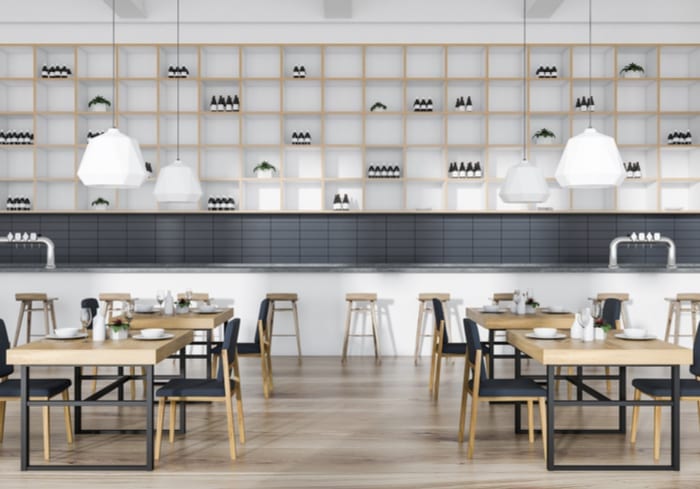When The Restaurant Becomes A Co-Working Space

To provide a space for remote workers to be productive, entrepreneurs are connecting these consumers with restaurants that have empty seats to spare during the day. WorkChew, for instance, allows those who buy a day pass or a subscription to work out of selected restaurants in the Washington, D.C. metro area and Chicago. “The competitor for us is basically the status quo,” WorkChew Co-Founder and Chief Relationship Officer Paul Dahm told PYMNTS in an interview. In other words, Dahm says that people assume the only other option is Starbucks or the dining room table.
Now, Dahm says, the company has been gaining real traction with a soft rollout over the last six months. With his business, which is a two-sided marketplace, he sees a chicken and egg situation. If the company doesn’t have restaurants, it doesn’t have members. And if it doesn’t have members, it doesn’t have restaurants. For WorkChew, the priority is to build the restaurant network. And those establishments have been embracing the model. “Restaurants are really getting it now,” Dahm said. To gain access to the spaces, consumers can visit the company’s website.
On that platform, they can look at the locations and access the company’s web app, which makes the sites searchable. Consumers can also reserve a space within the web app, so they know they’re going to get a seat before they visit the locations. Beyond ease of use, Dahm pointed out that the platform has a few benefits for consumers — a variety of spaces along with the certainty of a seat and working Wi-Fi in addition to a food and beverage discount. To access the restaurants, customers buy one of multiple different pass options from the company.
Plan Options
The company offers a daily pass along with one that provides access to locations in a single neighborhood or any restaurant in the network as often as they want with an all-access pass. And, when it comes to hours, the company provides them on the website and app, but Dahm pointed out that some restaurants do open early in the morning. To accept payments, the company uses Stripe. The platform provides a variety of neighborhoods, places and vibes, Dahm says, with a lot having a rustic industrial-looking feel that appeals to its 20- to 45-year-old demographic. In terms of cuisine, restaurants on the platform run the gamut from pizza to wine bars and southeast Asian cuisine.
When it comes to working with restaurants, Dahm says that these establishments often want to put people in the front window. At the same time, the key is to have those establishments convert those users to regular customers and convince them to come back with their friends for happy hour or dinner. The company also has a Slack channel, where members can communicate with each other and, say, organize happy hours at one of the restaurants in the network. Also, restaurants on the platform offer customers a discount (i.e, 15 percent off). That’s not too much of a stretch for restaurants, as Dahm says they already have affinity discounts for certain groups like those in the industry or VIPs.
The company serves a variety of people such as those who may be involved in a startup and thus not ready to pay for office space. Hot desks in the District of Columbia, for instance, start at approximately $350, Dahm pointed out, which is steep for someone just beginning. In another segment, he sees companies with large mobile sales teams or consultants as customers. He thinks there’s an upside around this enterprise model, as it can give people access to a workspace for not a lot of money.
The Co-Working Market
His company comes as the future of work is evolving and companies are embracing the idea of teleworking. (It’s a natural thing for younger people as well, Dahm says.) The technology, too, makes it less expensive and easier to run a solution like WorkChew. The restaurant business, also, is a brutally hard industry. “The margins are super thin,” Dahm says, “and real estate costs keep going up.” For this reason, Dahm says that restaurants are “much more open to seeing their spaces being used in a different way.”
Beyond WorkChew, Austin, Texas’ Reset allows consumers to use restaurants as co-working spaces, with options to access a site ranging from a drop-in day pass to a 10-visit pass and an unlimited monthly membership available for purchase with a major credit card. Almost everyone uses a free pass when first visiting the spaces. But following those first visits, some consumers buy a pass on the spot before they leave and others buy a pass online ahead of their next visit.
From Reset to WorkChew, eCommerce disruptors are reimagining the co-working space with the help of passes to restaurant spaces. And, with tens of millions working remotely, according to Dahm, and tens of millions of empty restaurant seats empty as 2 p.m., both space and user align quite nicely. By and large, he claims that restaurant spaces are more comfortable than a crowded coffee shop. “It’s a better solution for not a lot of money,” Dahmm said, indicating that online services that allow consumers to access restaurants for work may be the next big thing in co-working spaces.